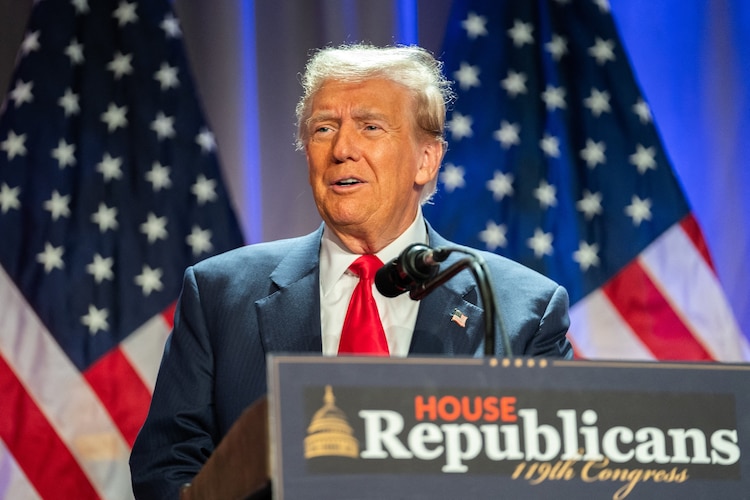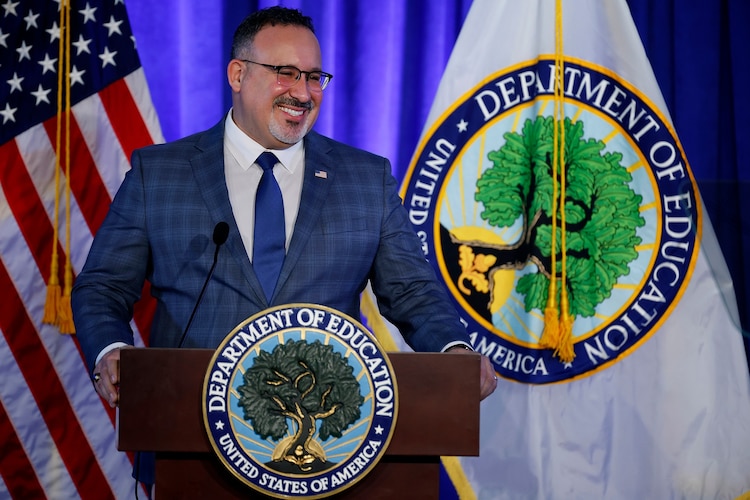Current Events
Author: anonymDate: 2024-11-20 17:21:50
Could Trump fulfill his pledge to abolish the Education Department?
The DOE collects education data and funds schools nationwide.
The President-elect, Donald Trump, has put forward a proposal to eliminate the Department of Education, aiming to return all educational responsibilities to state control, as outlined in his Agenda47 platform. Education specialists warn that such a move could jeopardize billions in funding, scholarships, and grants for millions of K-12 and university students nationwide.
What does the Department of Education do?
The DOE, established as a Cabinet-level department in 1979 under President Jimmy Carter, initially emerged in the late 19th century to gather data on effective educational practices. The agency oversaw the growth of federal education support. Following World War II, it expanded education aid for veterans through the GI Bill. After the Soviet Union's Sputnik launch, it spearheaded advancements in science, mathematics, and foreign language instruction in primary and secondary education, and bolstered vocational training. During the 1960s and 70s, its mission expanded to promote equal educational access, reflecting anti-poverty and anti-discrimination initiatives. This led to Title I funding to bridge educational disparities between low-income, rural students and wealthier schools.

The DOE also ensures schools comply with anti-discrimination laws including Title IX (gender), the Rehabilitation Act of 1973 and the Americans with Disabilities Act (disability), and Title VI (race). It manages Federal Student Aid, distributing over $120 billion annually in grants, work-study funds, and subsidized loans to roughly 13 million students. The Department also holds schools accountable under the Every Student Succeeds Act, requiring states to report on academic achievement, graduation rates, disciplinary actions, absenteeism, teacher qualifications, and other metrics. The department's website clarifies that it doesn't design curricula, set enrollment or graduation standards, or accredit institutions.
However, it has significantly influenced school funding for decades, especially as state investments in K-12 schools declined following the 2008 financial crisis. According to the Education Law Center, U.S. students lost nearly $600 billion due to reduced state funding in the decade after the recession. The complexities of eliminating the department include the challenge of distributing billions in DOE funds directly to individual states, according to higher education expert Clare McCann. McCann emphasized the specialized skills of DOE personnel in this process. "The Department of Education was created to provide in-house expertise and policy knowledge on these issues," McCann told ABC News, noting the department's skilled civil servants.
“What I've often observed, and written about, is the possibility of consolidating K-12 funding—Title One, IDEA, etc.—into a block grant. This would necessitate legal revisions, but it could involve allocating funds to states, giving them control over distribution,” Neal McCluskey of the Cato Institute told ABC News. Other education experts, like Wendy A. Paterson, dean of Buffalo State University's School of Education, expressed deep concerns about the viability of supporting families and children without a federal education department. She highlighted potential negative consequences for teachers and underserved communities, including low-income, disabled students, and those relying on FAFSA.
Why does Trump want to get rid of the Department of Education?
In a 2023 statement, Donald Trump reiterated his intention to "close the Department of Education in Washington, D.C., and return all educational functions to the states." He believes states would manage education more effectively. His Agenda47 plan doesn't detail the implications for existing programs. However, his previous statements, including interviews and appearances on "Fox & Friends," consistently demonstrate his desire to eliminate the agency, possibly replacing it with a single Cabinet-level appointee, reflecting his broader aims of streamlining government and improving efficiency. Other conservative and Republican figures, including Ronald Reagan, Vivek Ramaswamy, and several lawmakers, have voiced similar proposals over time. McCluskey has argued the department is unconstitutional due to its influence on local and state control of schools. Representative Virginia Foxx, Chairwoman of the House Education and the Workforce Committee, shares this view, stating that the Constitution doesn't explicitly mandate a federal education department.
Is it possible to eliminate it?
While theoretically feasible, education policy experts interviewed by ABC News deem such an undertaking on Inauguration Day, January 20, 2025, extraordinarily difficult and unrealistic. McCluskey clarified that such a change would require congressional action, as the department's creation was itself a legislative act.

Without congressional authorization, McCluskey stressed that the President-elect's campaign pronouncements lack legal weight. He highlighted the discrepancy between campaign rhetoric and practical implementation, noting that politicians often oversimplify complex issues during campaigns. He emphasized that the President cannot unilaterally dismiss all DOE employees and entrust program administration to a single individual.
Trump's education policy
Trump's school policy proposals include banning programs perceived as promoting gender transition, establishing a teacher certification process prioritizing "patriotic values," and barring transgender women from women's sports. He also favors funding states and school districts that eliminate teacher tenure and use merit-based pay, as well as empowering parents to choose school principals.